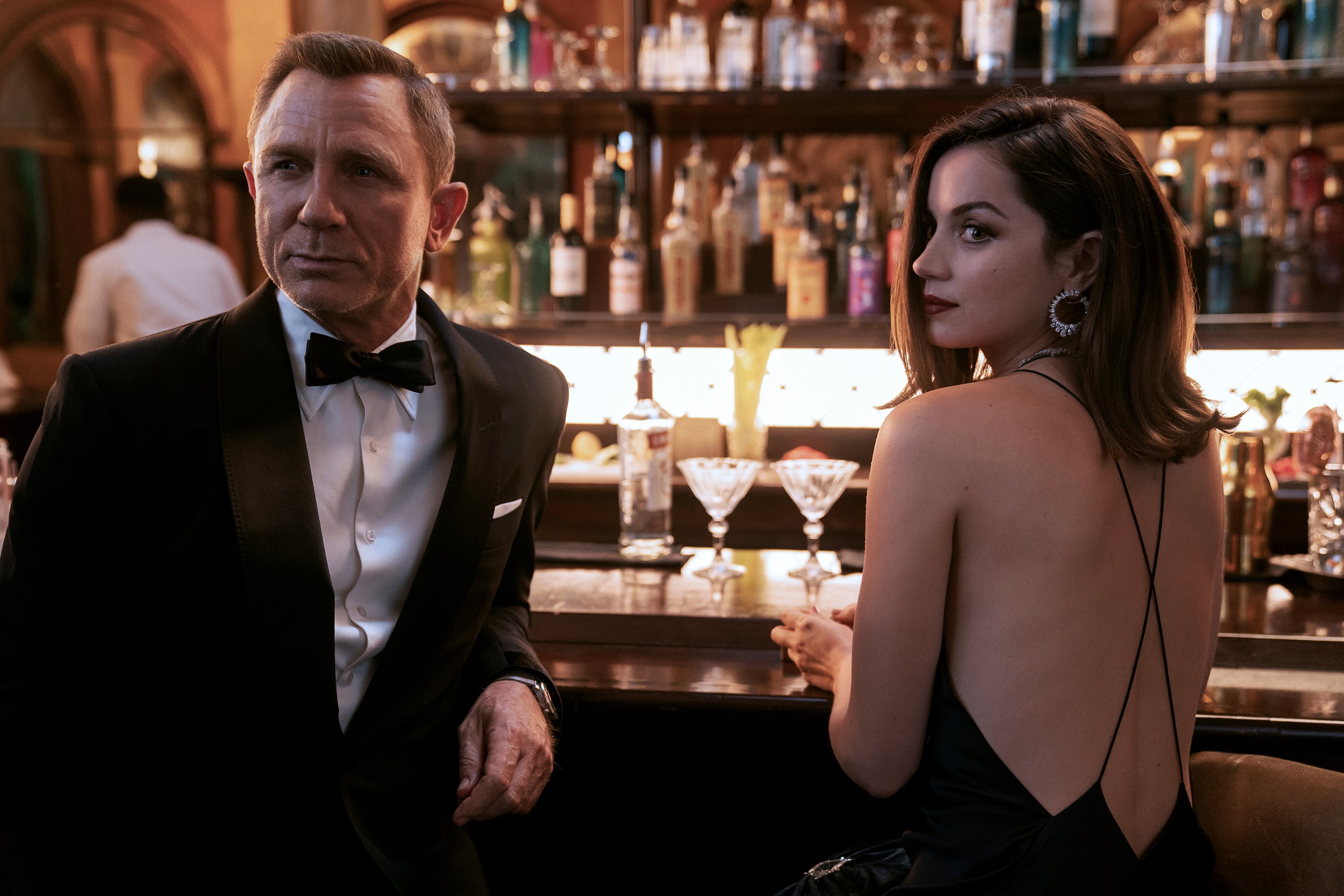What now for James Bond?
Superficially changing Bond’s race or gender for the statement alone wouldn’t say any more than has already been said, writes Clarisse Loughrey. Is there a better way to modernise Bond than what Craig has achieved?

*This article contains major spoilers for No Time To Die*
Our national obsession with the “next James Bond” has never been about who could realistically lead the franchise into its next chapter. It’s merely a competition to see which British actor is, in fact, the most British of them all. We’ve all heard the contenders: Tom Hardy, Idris Elba, James Norton, Luke Evans. Occasionally, someone will throw a woman’s name into the mix (Emilia Clarke! Suranne Jones!) and claim that a female Bond would be a truly feminist act. The only real qualifier is that they look somewhat decent in a tuxedo and seem like they could differentiate between a martini shaken or stirred. And I find it all rather tiresome. All too often, these are empty conversations, focused on betting odds and industry rumours, which show no consideration for what a Tom Hardy or Emilia Clarke-starring Bond might actually look like.
My only hope is that with the release of No Time to Die, Daniel Craig’s final outing, things might finally change. Here’s a chance for the Bond franchise to pause, to take stock of what it actually represents, and then make its confident stride into its future. It’s not enough to simply stuff someone else inside Craig’s shoes and hope for the best. We’ve reached a breaking point. Something radical needs to happen. And that is the promise laid out by No Time to Die’s seismic finale, which delivered what (until now) seemed like the impossible: Bond is dead. What can only come next is a rebirth.
I’m not sure how Bond’s death will play with audiences. Some will probably dismiss the whole thing as a shock tactic on the part of producers Michael G Wilson and Barbara Broccoli – a guaranteed way to get people to talk at a time when the blockbuster landscape is as competitive as ever. But I think there’s some poetry to it. All the highs and lows of the Craig era aside (is it better to simply forget Quantum of Solace ever existed?), the actor’s done something that’s above and beyond his predecessors in the role. He was the one to give Bond his soul – an entire soul, not just defined by a sense of levity, darkness, or danger. In all the conversations about where Ian Fleming’s creation – as this last gasp of masculine, imperialist power – fits into our modern world, we often underestimate how much Craig’s own performance confronts and challenges the character’s legacy.
The burden his Bond carries, carved into his brow, is the knowledge that he can never escape his 00 identity because it’s all that he has. He’s a man left behind by the world – forever outdated and useful only as a living weapon, a “blunt instrument”, as Judi Dench’s M calls him. That’s why his attempts at retirement or his desire to find lasting love always seem doomed to fail. Is there a better way to modernise Bond than what Craig has achieved? I’m not so sure. Superficially changing Bond’s race or gender for the statement alone wouldn’t say any more than has already been said. The only way the franchise could permanently detach itself from its misogynistic and racist past would be if it ceased to exist. And there’s still far too much money to be made.
Part of me thinks that the best way forward for Bond is for its filmmakers to become a little less reflective. It’s clear that Wilson and Broccoli have thought extensively about how Bond can stay relevant in a world so dominated by the complex multi-film universes of Marvel, DC, and Star Wars. But the solution has been merely to replicate the approach, instead of trying to offer audiences something different – the worst excesses of the Craig era all originate in the instance that each film should be treated as one chapter in a larger narrative, entirely so that Christoph Waltz’s Blofeld could have a speech about being the author of all Bond’s pain.
My biggest worry is that the next Bond will only dig deeper into that “cinematic universe” approach to franchise-making and that Bond’s death is now only the gateway to another gritty origin story. But imagine, just imagine, if we were delivered something completely different. What about a stylish, campy period piece? What if, instead of a tortured Bond, we had Henry Golding as a charismatic but reluctant spy who only really has a head for partying? This is, after all, the franchise that defined a genre. Why should Bond play by its own rules?
‘No Time To Die’ is in cinemas now
Subscribe to Independent Premium to bookmark this article
Want to bookmark your favourite articles and stories to read or reference later? Start your Independent Premium subscription today.

Join our commenting forum
Join thought-provoking conversations, follow other Independent readers and see their replies